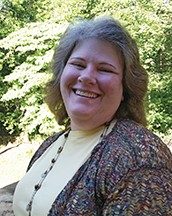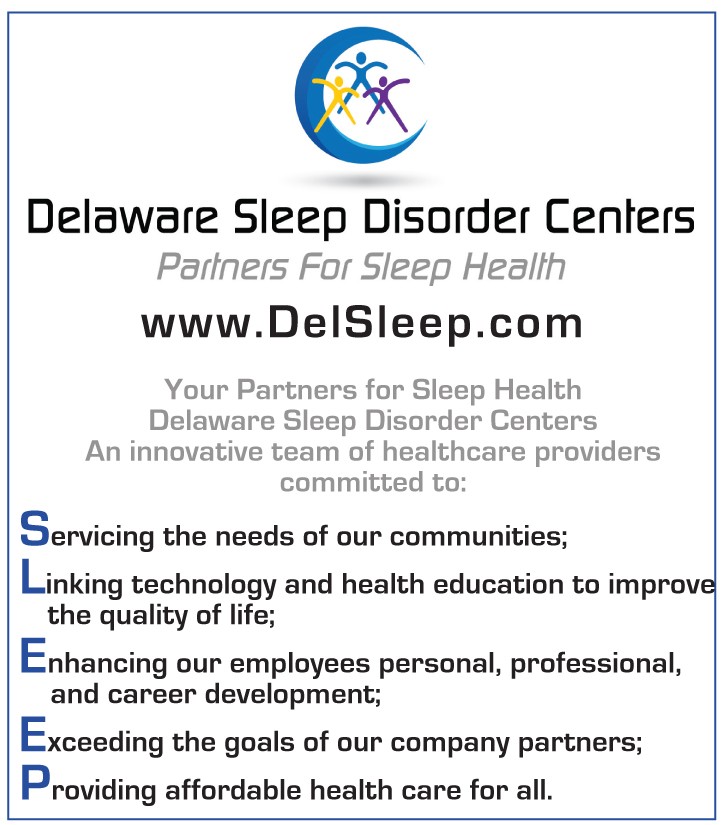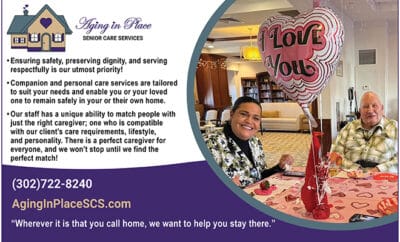Improve Your Wellness By Improving Your Sleep

By Grace R. Denault, BA, RPSGT, RST, CCSH
We live in a culture that celebrates sacrificing sleep. People constantly boast about how little they sleep. “I only slept 6 hours and then did all this work.” “Oh yeah, I know what you mean. I only slept 4 hours and did even more work than you!”
There was a time in our culture when people boasted like this about how much they could drink and still “drive ok”. The good news is that just as our culture no longer views drunk driving so mildly, attitudes towards sleep deprivation are also changing for the better.
We are no longer oblivious to the impairments caused by sleep deprivation. Poor sleep is physically detrimental to the body, weakening immunity, decreasing sex drive, increasing risks for high blood pressure, diabetes, weight gain and heart disease.
In the United States, over 100,000 motor vehicle accidents annually are related to sleep. Costs from sleep related accidents, litigation, property destructions are thought to be $50 to $110 billion annually. Forty million Americans suffer from chronic, long term sleep disorders.
Famous disasters and major accidents associated with poor sleep include:
- Exxon Valdez oil spill
- Three Mile Island nuclear accident
- Chernobyl nuclear catastrophe
- Space shuttle Challenger explosion
- NJ Turnpike auto accident that killed comedian James McNair and injured comedian Tracy Morgan
Fortunately sleep deprivation as a badge of honor is starting to fade away. We are starting to realize that even though we can “get by” on a few hours of sleep, we shouldn’t accept that any more than we accept “getting by” on french fries and ice cream as our only nutrition! Good sleep is finally becoming recognized as the third pillar of health, alongside good nutrition and good exercise.
So with all that being said, how can you improve your sleep? The first steps are to develop good sleep habits.
- Allow enough time to sleep 7-9 hours each night.
- Try to keep your bedtime and wake time consistent. No depriving yourself during the week and binge sleeping on the weekends.
- Remove as much technology from the bedroom as possible. Blue wavelengths of light from screens (phones, tablets, TVs, etc) are detrimental on a physical level to sleep.
- Avoid caffeine in the afternoon and evening. It might not prevent you from falling asleep, but it could decrease the quality of your sleep.
- The traditional advice about exercise and sleep has been to exercise regularly, but not too close to bedtime. However, reality is more nuanced. Exercise that calms you, like yoga, stretching or a leisurely stroll, can help you fall asleep more easily and maintain more solid sleep.
- Science is still investigating the relationship between aromas and sleep. Lavender is especially thought to encourage relaxation and sleep.
- There is also a lot of research regarding sound and sleep. Of course, any jarring or agitating noise is not going to help. Many people find they fall asleep better with white noise, which is boring, subtle but consistent noise, like the sound of rain or a vacuum cleaner. Some newer ideas that are gaining ground include pink noise (random noise with specific power at specific octaves) and binaural beats (2 different sounds introduced to each ear in a very specific way).
If you clean up your sleep hygiene and still find you are having difficulty falling asleep, staying asleep or staying alert through the day, then you may want to consider speaking to a health care professional to see if you have any symptoms related to a sleep disorder. Fortunately Delaware has great sleep specialists throughout the state.
The ACADEMY OF SLEEP AND WELLNESS is hosting an upcoming Wellness Weekend at the Beach. This getaway is designed to reduce stress and improve overall wellness and, of course, sleep. Experts in many of these modalities will be present to guide and educate attendees to better sleep hygiene and improved overall wellness. Please see www.academysleepwellness.com for details.
About the author:
Grace R. Denault, BA, RPSGT, RST, CCSH, has been involved with Sleep Medicine for 30 years. She obtained her B.A. in Psychology from Johns Hopkins University in1988 and has worked in the field since then.
She holds Registered Polysomnographic Technologist (RPSGT) credential #720, the Registered Sleep Technologist (RST) credential and Certification in Clinical Sleep Health (CCSH).
Her experience in sleep medicine includes front-line patient care, management, research, education and legislative activities. The ACADEMY OF SLEEP AND WELLNESS helps individuals learn ways to improve sleep leading to improved work performance and overall wellness. We also provide speakers for any group or event. Topics range from the connection between sleep and wellness to night shift optimization, tackling jet lag, maintaining an alert work force and specific disorders such as insomnia or sleep apnea. Please contact us for more information on how we can help your business.
Locations:
Sandhill Medical 118 Sandhill Drive Suite 201 Middletown, DE 19709
701 Foulk Rd. Suite 1G Wilmington, DE 19803
Connor Building @ Springside Plaza 300 Biddle Ave Suite 102 Newark, DE 19702
Medical Arts Bldg., Beebe Health Campus 18947 John J. Williams Highway Suite 213 Rehoboth Beach, DE 19971
20930 North DuPont Boulevard Suite 202 Georgetown, DE 19947





